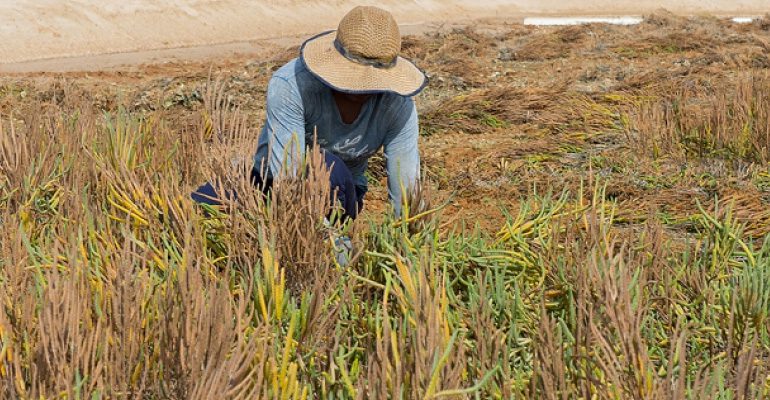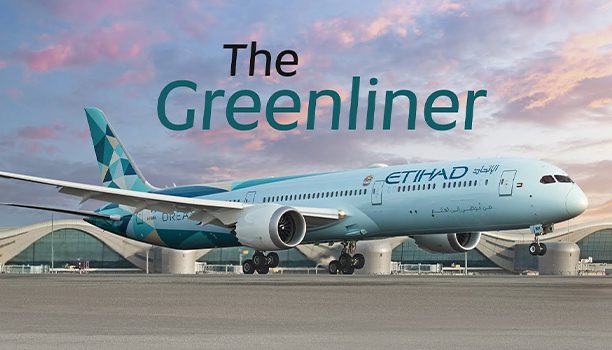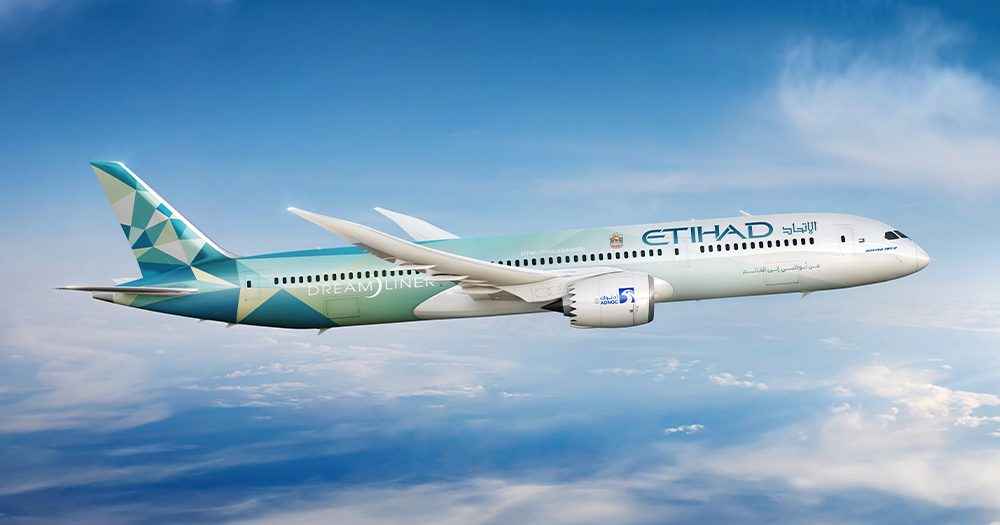In a post-COVID-19 world that will only demand more sustainable and responsible solutions from every sector of the travel industry, Etihad is already showing its innovation and real-world solutions to the key challenges facing aviation.
Regardless of the current COVID-19 crisis, sustainability and responsible climate action remain the most significant long-term challenge facing the aviation industry.
In the last two years, we’ve seen escalated climate change activism (including the incredible Greta effect) which has put flight sustainability on the map and emphasised the need to reduce the reliance on fossil fuels and emissions to make the skies greener.
“Future generations will be living in a world that is very different from that to which we are accustomed. It is essential that we prepare ourselves and our children for that new world.”
HH Sheikh Zayed bin Sultan Al Nahyan, Founding Father of the UAE
While commercial aviation still only represents around 2% of global human-made CO2 emissions, the airlines and infrastructure that supports them that can adapt to meet the needs of a sustainable, carbon-neutral operation are those that will survive and lead the future of flying.
To ensure this brighter future, airlines, airports, suppliers, aviation regulators, airspace navigation service providers and governments all need to come together to create a long-term solution for the benefit of the planet.
What is Etihad’s sustainable solution?
While the issue of aviation sustainability is a complex and ever-evolving one, here are a few examples of how the United Arab Emirates (UAE) flag carrier, is tackling the issues at hand.
Developing sustainable aviation fuel: Exploring the use of sustainable aviation fuel (SAF) has been at the core of Etihad’s business for the last decade with the airline a key partner of Abu Dhabi’s Sustainable Bioenergy Research Consortium, along with Boeing, and the Abu Dhabi National Oil Company.
Remarkably, long before sustainability became a mainstream term, Etihad’s first flight using plant-based fuel was back in 2012: from Abu Dhabi to Washington D.C.
Fast forward to 2019, and Etihad operated the first commercial flight from Abu Dhabi to Amsterdam on a Boeing 787 Dreamliner using clean, sustainable aviation fuel that had been refined in Abu Dhabi.

Sustainable fuel to reduce carbon emissions for the flight was derived from the oil in Salicornia plants, which were grown on the two-hectare farm in Masdar City, Abu Dhabi and refined as part of the Seawater Energy and Agriculture System (SEAS) – the world’s first desert ecosystem designed to produce fuel and food in saltwater.
These initiatives are progressive and exciting as Etihad continues to learn about sustainable fuels with the aim of making them less expensive and more widely available.
The fight against single-use plastics: On Earth Day, April 2019 Etihad were the first Middle Eastern airline to operate a flight without any single-use plastics, from Abu Dhabi to Brisbane, one of the longest sectors in the network.
By the end of 2019 Etihad had removed more than 30 single-use plastic items from its flights, resulting in 17 tonnes of waste saved from landfills.
Etihad will have reduced the number of single-use plastic items used throughout their business by the end of 2022, compared to April 2019 by a whopping 80%.
Etihad is continuing to work with suppliers to explore robust and affordable alternatives to single-use plastics – but, again, this will require broader industry collaboration between airlines, suppliers of catering equipment and cabin products and Government Agencies.
Putting it all together for less impact: Aside from developing sustainable aviation fuel and reducing waste and single-use plastics, other factors at play include cutting noise, fuel burn and optimised flight routing to reduce emissions.
In November last year, Etihad and Boeing signed a groundbreaking global strategic partnership, centred on the Boeing 787 ‘Greenliner’ to test cutting-edge technologies and explore ‘blue sky’ opportunities to improve airspace efficiency, reduce fuel burn, and cut CO2 emissions and noise pollution.

In January 2020, the airline operated a Boeing 787 EcoFlight from Abu Dhabi to Brussels in Belgium, the home of the EU.
The flight had an optimised routing; minimum single-use plastics; and other fuel efficiency initiatives, for example, using, electric tractors in their hub in Abu Dhabi and optimised potable water usage.
The results? When compared to a regular 787 flight on that route, the journey time was reduced by 40 minutes, cutting fuel by 800kg and CO2 emissions by 3 tonnes. Against the same flight one year prior with a different aircraft type, this sector cut fuel by 8 tonnes and reduced carbon emissions by a staggering 26 tonnes.

In January 2020, Etihad announced their commitment to zero net carbon emissions by 2050 and a halving of 2019 emissions by 2035.
In a distinct mark of Abu Dhabi’s founding progressive principles, Etihad are focussed on a triple bottom line approach to ensure social, environmental, and financial sustainability for the business and the planet.
Find out more: www.etihadaviationgroup.com/sustainability
This article was brought to you by:







